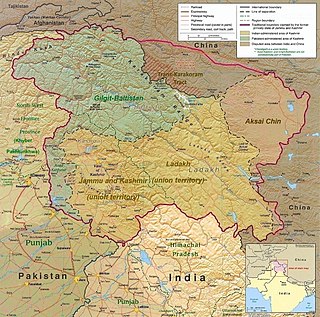The adversarial system or adversary system or accusatorial system or accusatory system is a legal system used in the common law countries where two advocates represent their parties' case or position before an impartial person or group of people, usually a judge or jury, who attempt to determine the truth and pass judgment accordingly. It is in contrast to the inquisitorial system used in some civil law systems where a judge investigates the case.

Negotiation is a dialogue between two or more parties to resolve points of difference, gain an advantage for an individual or collective, or craft outcomes to satisfy various interests. The parties aspire to agree on matters of mutual interest. The agreement can be beneficial for all or some of the parties involved. The negotiators should establish their own needs and wants while also seeking to understand the wants and needs of others involved to increase their chances of closing deals, avoiding conflicts, forming relationships with other parties, or maximizing mutual gains. Distributive negotiations, or compromises, are conducted by putting forward a position and making concessions to achieve an agreement. The degree to which the negotiating parties trust each other to implement the negotiated solution is a major factor in determining the success of a negotiation.

A territorial dispute or boundary dispute is a disagreement over the possession or control of land between two or more political entities.

In public relations and politics, spin is a form of propaganda, achieved through knowingly providing a biased interpretation of an event or campaigning to influence public opinion about some organization or public figure. While traditional public relations and advertising may manage their presentation of facts, "spin" often implies the use of disingenuous, deceptive, and manipulative tactics.

Divide and rule policy, or divide and conquer, in politics and sociology is gaining and maintaining power divisively. Historically and presently, this strategy was and is used in many different ways by empires seeking to expand their territories; however, it has been hard to distinguish between the exploitation of pre-existing divisions by opponents, and the deliberate creation or strengthening of these divisions implied by "divide and rule".

Media manipulation refers to orchestrated campaigns in which actors exploit the distinctive features of broadcasting mass communications or digital media platforms to mislead, misinform, or create a narrative that advance their interests and agendas.

Brinkmanship or brinksmanship is the practice of trying to achieve an advantageous outcome by pushing dangerous events to the brink of active conflict. The maneuver of pushing a situation with the opponent to the brink succeeds by forcing the opponent to back down and make concessions rather than risk engaging in a conflict that would no longer be beneficial to either side. That might be achieved through diplomatic maneuvers, by creating the impression that one is willing to use extreme methods rather than concede. The tactic occurs in international politics, foreign policy, labor relations, contemporary military strategy, terrorism, and high-stakes litigation.
Conflict resolution is conceptualized as the methods and processes involved in facilitating the peaceful ending of conflict and retribution. Committed group members attempt to resolve group conflicts by actively communicating information about their conflicting motives or ideologies to the rest of group and by engaging in collective negotiation. Dimensions of resolution typically parallel the dimensions of conflict in the way the conflict is processed. Cognitive resolution is the way disputants understand and view the conflict, with beliefs, perspectives, understandings and attitudes. Emotional resolution is in the way disputants feel about a conflict, the emotional energy. Behavioral resolution is reflective of how the disputants act, their behavior. Ultimately a wide range of methods and procedures for addressing conflict exist, including negotiation, mediation, mediation-arbitration, diplomacy, and creative peacebuilding.
Extremism is "the quality or state of being extreme" or "the advocacy of extreme measures or views". The term is primarily used in a political or religious sense to refer to an ideology that is considered to be far outside the mainstream attitudes of society. It can also be used in an economic context. The term may be used pejoratively by opposing groups, but is also used in academic and journalistic circles in a purely descriptive and non-condemning sense.
The Thirty-Six Dramatic Situations is a descriptive list which was first proposed by Georges Polti in 1895 to categorize every dramatic situation that might occur in a story or performance. Polti analyzed classical Greek texts, plus classical and contemporaneous French works. He also analyzed a handful of non-French authors. In his introduction, Polti claims to be continuing the work of Carlo Gozzi, who also identified 36 situations.
Fourth-generation warfare (4GW) is conflict characterized by a blurring of the distinction between war and politics, and of the distinction between combatants and civilians.
In the two-round system, there is potential for both tactical voting and strategic nomination. Tactical voting is where voters do not vote in accordance with their true preferences, but instead vote insincerely in an attempt to influence the result. Runoff voting is intended as a method that reduces tactical voting, but two tactics called compromising and pushover are still possible in many circumstances. In particular voters are strongly encouraged to compromise by voting for one of the three leading candidates in the first round of an election.
The exhaustive ballot is a voting system used to elect a single winner. Under the exhaustive ballot the elector casts a single vote for their chosen candidate. However, if no candidate is supported by an overall majority of votes then the candidate with the fewest votes is eliminated and a further round of voting occurs. This process is repeated for as many rounds as necessary until one candidate has a majority.

Communist propaganda is the artistic and social promotion of the ideology of communism, communist worldview, communist society, and interests of the communist movement. While it tends to carry a negative connotation in the Western world, the term propaganda broadly refers to any publication or campaign aimed at promoting a cause and is/was used for official purposes by most communist-oriented governments. The term may also refer to political parties' opponents' campaign. Rooted in Marxist thought, the propaganda of communism is viewed by its proponents as the vehicle for spreading their idea of enlightenment of working class people and pulling them away from the propaganda of who they view to be their oppressors, that they claim reinforces exploitation, such as religion or consumerism. Communist propaganda therefore stands in opposition to bourgeois or capitalist propaganda.
In military doctrine, countervalue is the targeting of an opponent's assets that are of value but not actually a military threat, such as cities and civilian populations. Counterforce is the targeting of an opponent's military forces and facilities. The Oxford English Dictionary, 2nd ed., records the first use of the word in 1660 and the first use in the modern sense in 1965 in which it is described as a "euphemism for attacking cities".
Organizational conflict, or workplace conflict, is a state of discord caused by the actual or perceived opposition of needs, values and interests between people working together. Conflict takes many forms in organizations. There is the inevitable clash between formal authority and power and those individuals and groups affected. There are disputes over how revenues should be divided, how the work should be done, and how long and hard people should work. There are jurisdictional disagreements among individuals, departments, and between unions and management. There are subtler forms of conflict involving rivalries, jealousies, personality clashes, role definitions, and struggles for power and favor. There is also conflict within individuals – between competing needs and demands – to which individuals respond in different ways.
In nuclear strategy, a counterforce target is one that has a military value, such as a launch silo for intercontinental ballistic missiles, an airbase at which nuclear-armed bombers are stationed, a homeport for ballistic missile submarines, or a command and control installation.
Alex Kerr was a Northern Irish former loyalist paramilitary. Kerr was a brigadier in the Ulster Defence Association (UDA)'s South Belfast Brigade. He is no longer active in loyalism.
Whataboutism or whataboutery is a pejorative for the strategy of responding to an accusation with a counter-accusation instead of a defense of the original accusation.
Peace psychology is a subfield of psychology and peace research that deals with the psychological aspects of peace, conflict, violence, and war. Peace psychology can be characterized by four interconnected pillars: (1) research, (2) education, (3) practice, and (4) advocacy. The first pillar, research, is documented most extensively in this article.







